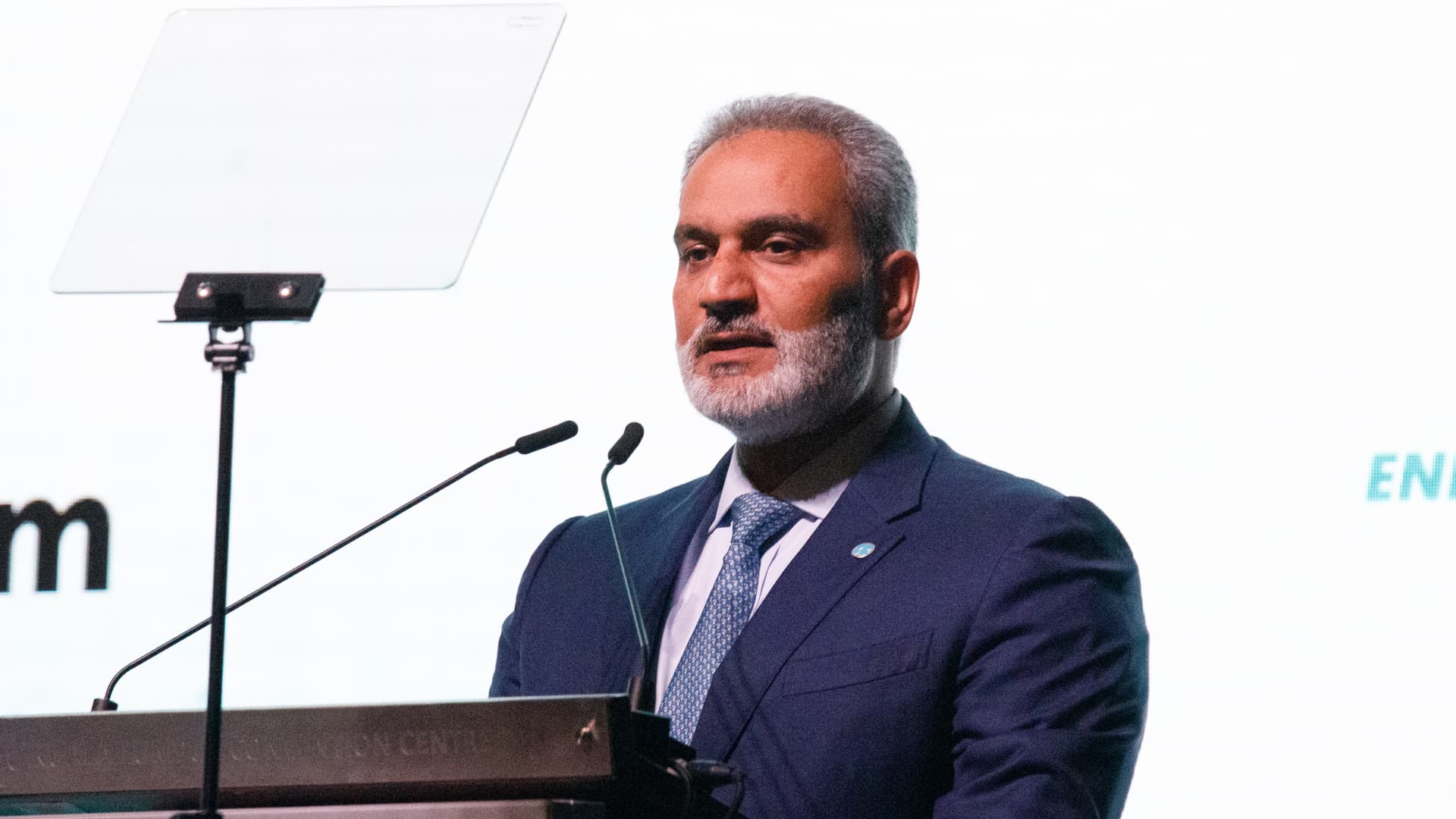Haitham al-Ghais, secretary-general of the Organization of Petroleum Exporting Countries (OPEC), delivered a speech at the Energy Asia Summit on June 26, 2023.
Bloomberg | Bloomberg | Getty Images
What do toothpaste, deodorant, soap, cameras, computers, gasoline, heating oil, jet fuel, car tires, contact lenses, and artificial limbs have in common?
If oil vanished today, these and many other vital products and services that rely on oil or its derivatives would disappear as well. Transportation networks would come to a standstill, homes would lose heat, supply chains would collapse, and energy poverty would increase.
The World Energy Report for 2022, published by the UK-based Energy Institute and consulting firms KPMG and Kearney, revealed that fossil fuels accounted for 82% of global energy in 2022. This aligns with OPEC’s latest world oil outlook and reflects a similar level to 30 years ago.
So why do most energy transition debates overlook the crucial role that commodities like oil and gas continue to play in improving lives, promoting stability and energy security, and supporting efforts to reduce emissions? The challenge of climate change is immense, but meeting the world’s growing energy demand and addressing climate change do not have to be isolated or conflicting goals.
Instead, it is important to reduce emissions while ensuring universal access to essential products and services. OPEC members are investing in cleaner technologies, utilizing their expertise to decarbonize the oil industry, and making significant investments in renewables, hydrogen capacity, carbon capture utilization and storage, and the circular carbon economy.
The bottom line is that we can heavily invest in renewables while continuing to produce the oil required by the world now and in the future. This approach also contributes to global stability in a volatile time, considering that energy transitions typically take decades and follow various paths.
For example, electric vehicles (EVs) have gained popularity, but the sales of hybrid and electric vehicles still represent a small portion of the overall market. In the US, they accounted for only 12.3% of new vehicle sales in 2022, while in China, battery electric vehicles (BEVs) made up 19% of new car sales. In the EU, petrol and diesel vehicles still dominated around half of the car sales in 2022.
Therefore, it would not be wise to overlook the fact that billions of people around the world depend on oil, especially in transportation and other industries. This becomes even more significant considering the investment required to meet rising energy demand, ensure energy security, achieve affordable access, and reduce global emissions in line with the Paris Agreement.
Rising demand for energy
The world’s population is growing, and OPEC’s World Oil Outlook (WOO) for 2022 projects an increase of 1.6 billion people by 2045. According to the United Nations, the population could reach around 10.4 billion by 2100.
Simultaneously, global energy demand is expected to rise by 23% by 2045, with oil demand projected to reach around 110 million barrels per day (mb/d). This indicates that oil will remain a vital part of the global energy infrastructure for several decades to come. Contrary to previous predictions, contemporary oil demand is close to record levels and will continue to grow in the coming years.
No single energy source can currently satisfy the future energy demand. Instead, an inclusive approach that leverages all available energy sources and technologies is necessary. OPEC member countries are committed to providing affordable energy while reducing emissions and addressing energy poverty.
More than 700 million people still lack access to electricity, and nearly one-third of the global population uses inefficient and polluting cooking systems. For these individuals, energy access is about basic necessities like heat and electricity. In developing countries, oil will play a key role in achieving universal and affordable energy access, as recognized by the Global South. It is crucial for the Global North to take this into account.
Investment in oil is critical for energy security
An alarming reality worldwide is the insufficient investment in all energy sources. The projected growth in oil demand alone necessitates significant investment to ensure a sustainable supply.
By 2045, oil will account for nearly 29% of global energy needs, requiring an investment of $12.1 trillion. This translates to over $500 billion per year, but recent annual levels of investment have fallen short of this requirement.
The consequences of inadequate investment in oil are evident in recent research by the OPEC Secretariat, which highlights a potential oil market deficit of 16 million barrels per day within five years, should upstream activities be halted. The oil industry has played a central role in improving countless lives, and to continue doing so, we must address the chronic under-investment in the sector promptly.
As the world prepares for the United Nations Climate Change Conference (COP28), COP28 President-Designate Dr. Sultan Ahmed Al Jaber emphasizes the need for “maximum energy, minimum emissions.” Achieving this goal requires pragmatic approaches that acknowledge the complexities of the energy sector and utilize all available energy sources to meet current and future energy demands.
No nation, industry, or individual can be overlooked in these discussions, and it is crucial to learn from history and understand the consequences of neglecting energy’s interconnected nature.
Denial of responsibility! VigourTimes is an automatic aggregator of Global media. In each content, the hyperlink to the primary source is specified. All trademarks belong to their rightful owners, and all materials to their authors. For any complaint, please reach us at – [email protected]. We will take necessary action within 24 hours.


